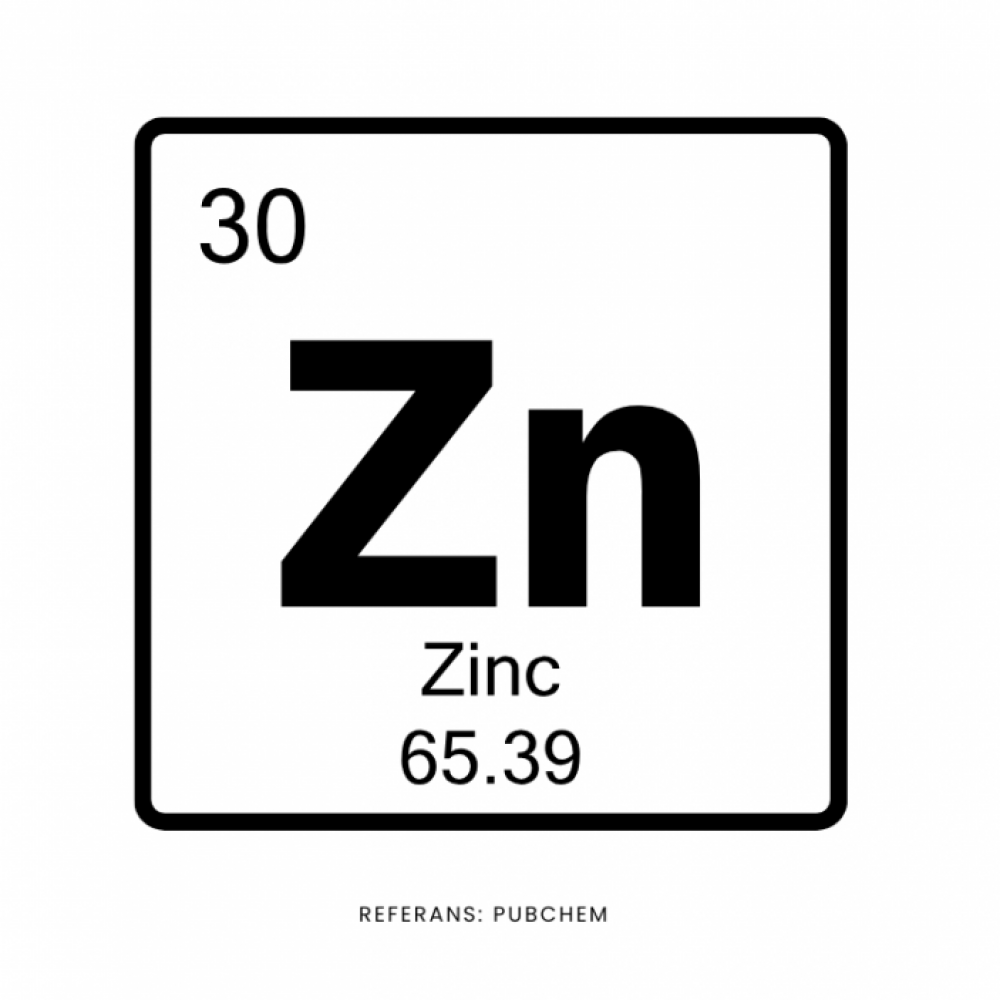
Zinc serves as a cofactor in the human body and is involved in the synthesis or distribution of main metabolites, namely carbohydrates, lipids, proteins and nucleic acids, protein and nucleic acid structure stabilization, components of transport particles and genetic components. Zinc can be used for the treatment and prevention of zinc deficiency/its consequences, including stunted growth and acute diarrhea in children, and slowed wound healing. It is also utilized for boosting the immune system, treating the common cold and recurrent ear infections, as well as preventing lower respiratory tract infections.
Molecular Formula: Zn
Molecular Weight: 65.4 g/mol
PubChem CID: 23994
CAS Number: 7440-66-6
Synonyms: Zinc, elemental
MeSH Pharmacological Classification: A group of chemical elements that are needed in minute quantities for the proper growth, development, and physiology of an organism.
Zinc has three primary biological roles: The catalytic and structural role of zinc is well established, and there are various noteworthy reviews on these functions. For example, zinc is a structural constituent in numerous proteins, inclusive of growth factors, cytokines, receptors, enzymes, and transcription factors for different cellular signaling pathways. It is implicated in numerous cellular processes as a cofactor for approximately 3000 human proteins including enzymes, nuclear factors, and hormones. Zinc promotes resistance to epithelial apoptosis through cell protection (cytoprotection) against reactive oxygen species and bacterial toxins, likely through the antioxidant activity of the cysteine-rich metallothioneins. Zinc mineral is very important for biological function and development, and its deficiency causes problems in various organ systems. Zinc deficiency can occur in vegetarian and vegan diets, long-term parenteral nutrition therapy, intestinal diseases, alcoholism and pregnancy. Zinc deficiency may cause problems such as growth retardation, delayed sexual maturation, alopecia (baldness), delayed wound healing, skin lesions, immune deficiency, and night blindness. Visible clinical improvement is observed in patients with zinc-rich nutrition and zinc supplementation. Zinc nutritional supplements administered orally or intravenously can also be administered under the supervision of a physician.